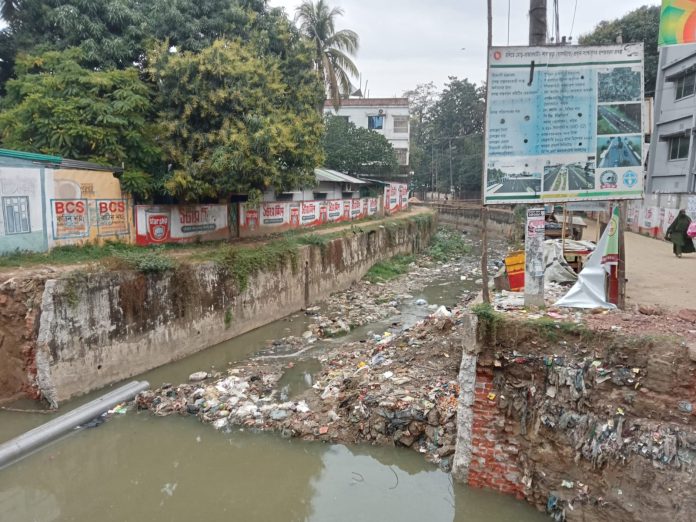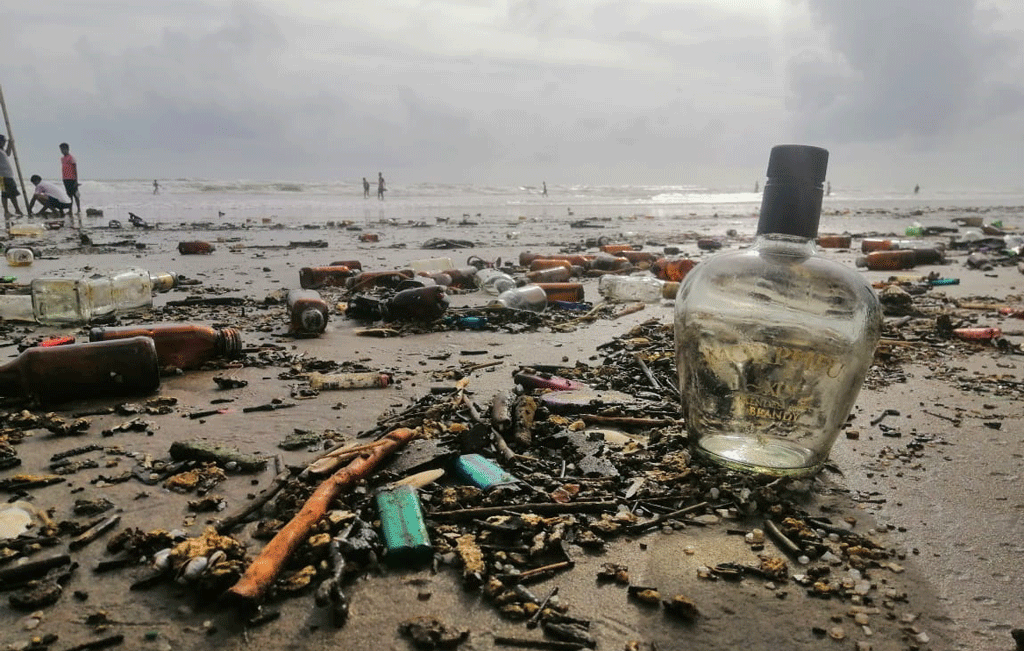
Roton Malo and Manik Esahak Biswas:
The largest tourist city of Bangladesh on the southeast coast has been grappling with solid waste management crisis for years which has worsened amid the massive renovation work all around the city of Cox’s Bazar.
Although some cleaners of the city corporation seem to be busy every morning collecting wastes, the massive amount of wastes are seen blocked where and there irking the passersby.
Children, women, school goers, elderly people in the city are being negatively impacted by the city wastes thrown away by irresponsible citizens.
The paramount of beauty and natural scenario of Cox’s Bazar attracts the tourists from the different corners of the world but the mismanagement of solid waste has becoming an increasing issue particularly in this city corporation area.
According to government sources, around 265,500 people lives in the 23.4 square kilometer areas of Cox’s Bazar. People are surprisingly seeming to be damn care and habituated with throwing household level wastes here and there. 
Moreover, solid waste leads to blockage in the drainage system which leads to flooding in the in the city’s important areas during monsoon.
Without any hesitation Rahim Molla, a shopkeeper at Burmese Market area in the city, said “I throw the wastes of my shop in front my shop every evening. Sometime, they (city corporation workers) collect it sometime it stays as it is on the road.”
Asked about the negative impacts, Rahim said “I understand, but this is the way we are doing from long time.”
According to experts, waste concern is significantly leading us in waste recycling, environmental improvement and sustainable development through professional knowledge sharing and provision of recommended facilities in Bangladesh.
Experts say that one of the most adverse impacts of poor waste management, especially municipal waste, is the incidence and prevalence of diseases such as malaria and respiratory problems, as well as other illnesses through the contamination of ground water. So, we all are responsible for our common present situation to manage this crisis and critical time.
Dipali Dey, a school teacher in Goldighir Par area in the city, she said that “the city corporation must come forward and take necessary steps to clean the city regularly and save the environment.”
“Mass people also have to change their bad habit of throwing wastes where and there without putting in a fixed place,” Dipali added.
Solid waste is a big hazard since it is often disposed by the sewage system or drains. Such poor sanitation has serious consequences for the health of the residents. There is an investigative report which shows that “most of the child mortality could be related with this problem”.
According to the National 3R Strategy for Waste Management, which was published by Department of Environment, Ministry of Environment and Forest in December 2010, refers to Reduce, Reuse and Recycle solid wastes.
These 3R initiatives to make the waste in resources instruct us using appropriate and affordable technology should be emission reducing.
In-fact many more policies and procedures are in place, but lack of replications and practices hampers the beauty of daily life.
* Roton Malo and Manik Esahak Biswas, both are living in Cox’s Bazar and affiliated with non-government organizations. They can be reached out through Email: [email protected] and [email protected]































